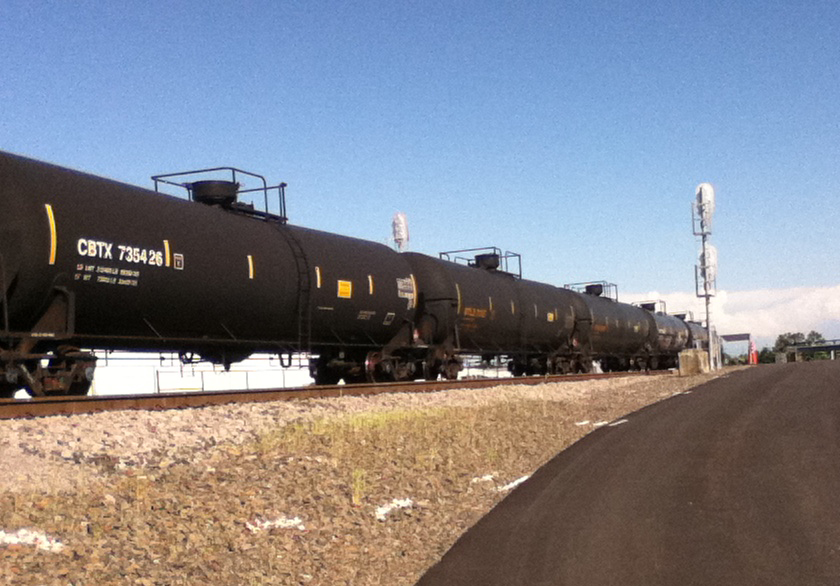The state agency examining the impacts of what would be the nation’s largest rail-to-marine oil transfer terminal in Vancouver says it won’t broaden its analysis in the face of new contract details showing the facility could be expanded or that a second one could be built in the future.
The state Energy Facility Site Evaluation Council said it doesn’t need to widen its analysis of the facility proposed by Tesoro Corp. and Savage Cos. at the Port of Vancouver in response to Kristen Boyles, an attorney for Earthjustice who had requested the expanded review.
That’s because the companies haven’t changed their permit application, submitted more than two years ago, to seek “an increased capacity, expanded or new facility,” according to Stephen Posner, manager for the evaluation council. To date, he said, the analysis of the proposed oil terminal, including development of a draft environmental impact statement, is “based on a maximum capacity to receive an average of 360,000 barrels per day.”
Boyles had raised concerns in light of recently disclosed information revealed by the port in its lease with Tesoro, a petroleum refiner, and Savage, a transportation company. The new details include that the companies have the ability to expand or build a second oil-by-rail facility if they handle more than an average of 400,000 barrels of crude per day with the first terminal. The port had previously concealed the 400,000 figure from the public but divulged it and other details on Aug. 6 as part of a settlement of a lawsuit against it.
In her Aug. 18 letter to the evaluation council, Boyles requested the agency make sure its impact study “is based on the proposed facility’s actual maximum capacity under its physical and operational design (which is apparently more than 400,000 barrels per day), rather than any anticipated operational limit.”
In a phone interview about the evaluation council’s response to her request, Boyles said she’s glad the agency confirmed that it’s examining “a limited, although enormous size” of oil with the proposed facility. “I think they should still be asking questions of (the companies) to ensure that there isn’t a project being proposed that could be bigger than what the company is telling the public.”
Boyles is representing Columbia Riverkeeper, Friends of the Columbia Gorge, ForestEthics, Spokane Riverkeeper, Sierra Club, Washington Environmental Council, Climate Solutions and Vancouver’s Fruit Valley Neighborhood Association.
Before the evaluation council sent its Sept. 3 letter to Boyles, Tesoro and Savage, in partnership as Vancouver Energy, sent an Aug. 28 letter to the council that responded to Boyles’ concerns. “The lease paragraph in question ONLY established the operational parameters that would allow Vancouver Energy to have an exclusive right to operate a terminal,” according to Kelly Flint, senior vice president and general counsel for Savage. “The 400,000 bbls (barrels) per day level recited in the paragraph in question serves merely as the trigger for the port’s option to seek to develop another facility, which in turn would be subject to a right of first opportunity on the part of Vancouver Energy to maintain exclusive use. It does NOT in any way imply directly or indirectly a desire to build or operate a facility at more than the permit application threshold sought of 360,000 bbls (barrels) per day.”
Several delays have pushed the release of the oil terminal’s draft environmental impact statement until late November at the earliest. The sweeping document is expected to offer the most detailed look yet at the proposed terminal. It also will trigger a new round of public comment. The evaluation council will eventually make a recommendation to Gov. Jay Inslee, who gets the final say over whether the project gets built.




